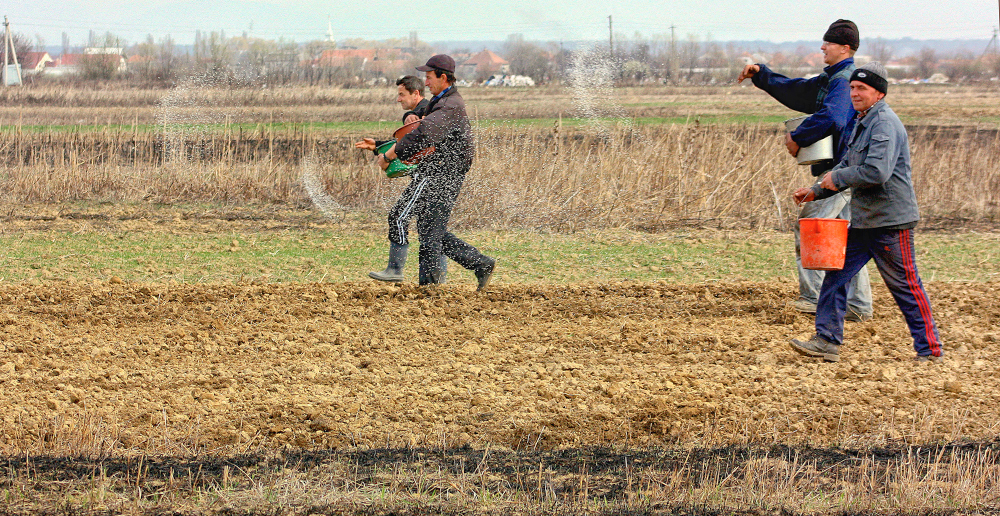Ukraine approved new law on agricultural cooperation

- The new law, designed by FAO/EBRD, provides the building blocks for modern agricultural cooperation in Ukraine.
- Agricultural cooperatives can improve farmers’ productivity, bargaining power and profitability.
- Efforts are needed to strengthen existing cooperatives and raise awareness among farmers and other value chain actors of the benefits of cooperatives.
The Parliament of Ukraine recently approved landmark legislation that will pave the way for modern agricultural cooperation in the country.
The European Bank for Reconstruction and Development (EBRD) and the Food and Agriculture Organization of the United Nations (FAO) welcomed this news, having long advocated for such a move.
By working together, farmers can improve their access to high quality inputs, modern technologies, technical advice, financing and markets – both at home and abroad – and strengthen their bargaining power.
An EBRD/FAO team comprising legal and technical experts helped design the law, which was later reviewed by leading international experts from the International Co-operative Alliance, the Canadian Co-operative Association, Rabobank and FAO’s legal team.
The new law harmonizes the national legal framework on agricultural cooperation with international principles of economic cooperation.
Strength in numbers
Agricultural cooperatives have taken hold in many countries throughout the world. Italy and France, for example, have longstanding cooperative traditions that have contributed significantly to their agricultural growth and development.
According to statistics published by France’s La Coopération agricole, Europe alone boasts nearly 180,000 cooperative companies with over 4.5 million employees and almost USD 1 trillion in annual sales.
But in Ukraine, a number of bottlenecks have held back the development of agricultural cooperatives – from a poor legal framework and the lack of a business mindset to mistrust and a negative perception of cooperatives.
Before the adoption of the new law, Ukraine’s legal framework on cooperation promoted modernized “collectivization” instead of genuine economic cooperation principles.
Today, less than 1 percent of Ukraine’s agricultural gross domestic product is generated by cooperatives – something this new legislation will help change.
Toward cooperation
Over the last seven years the EBRD and FAO, along with their partners, have advocated for agricultural cooperatives in Ukraine via various initiatives, multi-stakeholder policy dialogue, roundtable discussions, seminars and media articles.
A 2013 EBRD/FAO project, for example, helped convince Ukrainian milk farmers to join forces to add value to their milk through processing – raising milk quality and safety standards in the process – in order to tap into new markets. Thanks to the project, cooperative processing is now a reality.
That initiative led to another EBRD/FAO project – a partnership agreement between the Ukrainian Government and the private sector – to harmonize Ukraine’s legislation with that of the European Union. This included drafting a new legal framework on agricultural cooperation.
In 2016, the EBRD and FAO began supporting various cooperative initiatives through awareness raising, advisory support and capacity building.
A year later, over 70 grain producing farmers with an overall land mass of around 200,000 hectares formed their cooperative. By 2019, the cooperative was successfully trading grains at a higher price thanks to increased volumes. The cooperative was also able save its members millions of dollars by importing fertilizers at a much lower cost than before.
Road ahead
While this new legislation was a major breakthrough, more work needs to be done.
Additional changes in legislation are required. The Tax Code, for example, will need to be changed to allow for the distribution of profit among members proportionate to their contributions to the cooperatives during the financial year, and taxed at farm level. Associations that had benefited earlier from EBRD/FAO technical expertise are now taking charge of these issues and driving the process.
For the shift toward modern agricultural cooperation to take hold, it is important to continue strengthening existing cooperatives so they can grow and mature sustainably. It is also important to raise awareness among small and medium-sized farmers and other value chain actors of the advantages and opportunities that cooperatives can offer.
The EBRD and FAO stand ready to support the development of agricultural cooperatives in Ukraine for a more inclusive, sustainable and profitable agriculture sector.
